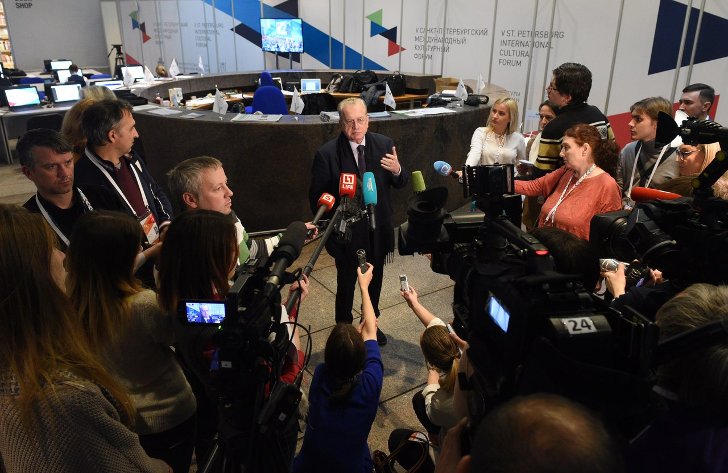Founded in 2012, the Forum is organized by the Ministry of Culture of the Russian Federation and the Government of the Russian Federation. Its mission is to develop culture as a progressive force that brings the constructive origin into the life of Russia and of the world community as a whole. The goals of the Forum are tied to the three aspects of culture: culture as heritage, culture as a social development factor, and culture as industry (economics of culture).
The program of the Forum is divided into multiple sections: Theatre, Music, Museums and Exhibition Projects, Cinema, Circus and Street Theatre, Folk Art and Intangible Cultural Heritage, Tourism, Ballet and Dance, Fine Arts, Cultural Heritage Preservation, Literature and Reading, Mass Communications, Education, Creative Industry and Urban Science. The head of each section is a renowned specialist in the corresponding field.
The St. Petersburg International United Cultures Forum features professional events and public events. The Forum’s Professional Flow program is intended to encourage open dialog and cultural exchange between experts from around the world. To participate in the Professional Flow, one needs to submit an application in advance. Some events of the program require a personal invitation or additional registration.
The Public Event Flow is a series of cultural events for the residents and guests of Saint Petersburg who are interested in various aspects of culture. Held in multiple venues across the city, they include open lectures, exhibitions, workshops, concerts, shows, and more. Admission to all events is free, but to attend any of the events, you need to register and get an e-ticket in your Personal Web Office on the Forum website.
Every year, several awards are presented at the St. Petersburg International United Cultures Forum. The Patron of the Year Award is given to prominent philanthropists who support projects aimed at preserving Russia’s cultural heritage. The Anatoly Lunacharsky Award is presented to cultural workers who represent non-creative occupations (museum employees, educators, librarians, theatre technicians, etc.).

Photo: unitedcultures.ru




